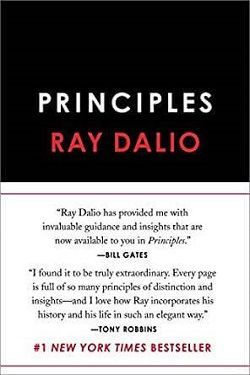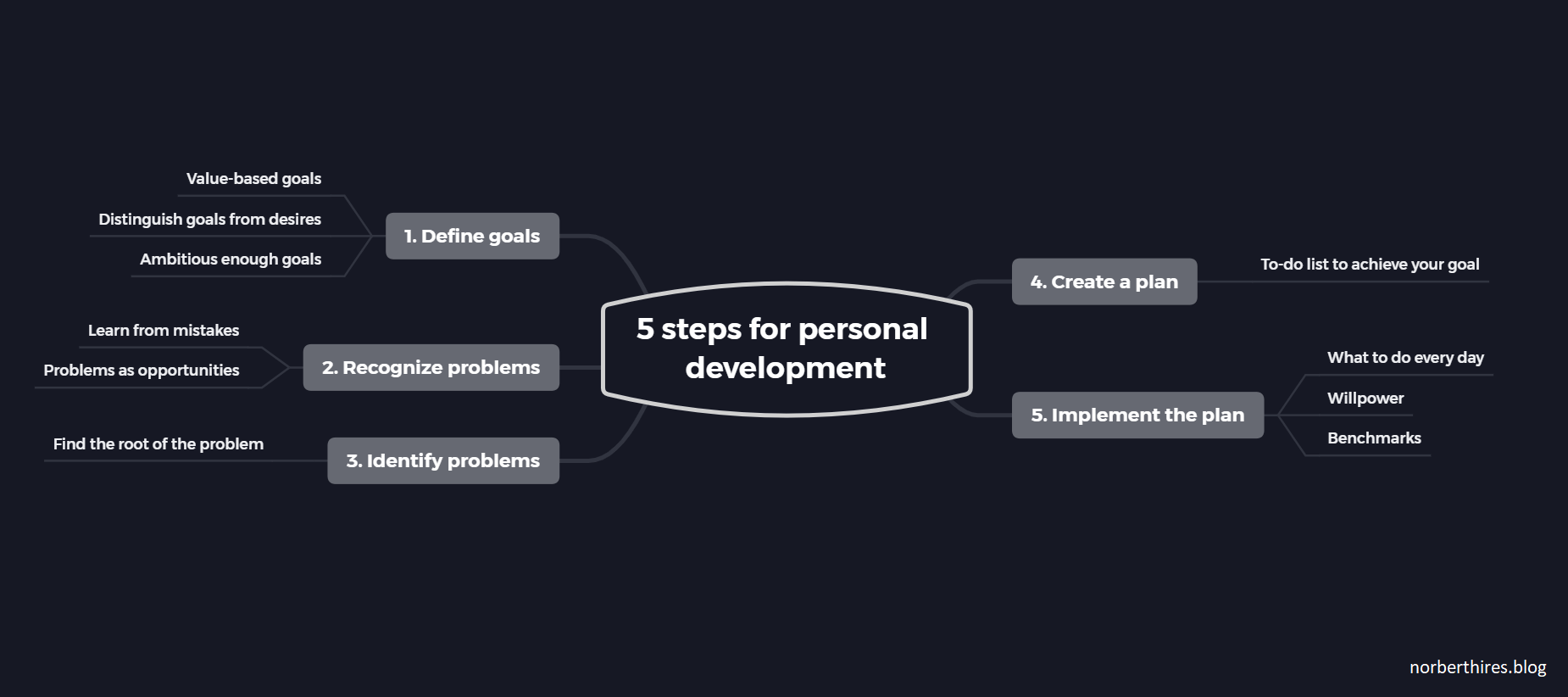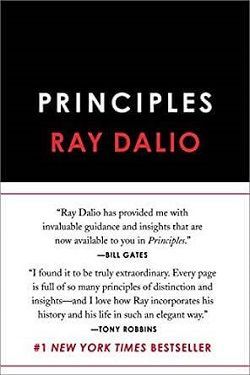Principles By Ray Dalio - Summary And Notes

Bridgwater Associates is the world’s largest hedge fund, managing more than $150 billion. Although many people have written about them in recent years in connection with money market movements and investments, their corporate culture, which enables them to achieve extraordinary results, is also remarkable.
Their unorthodox operation is characterized by radical honesty and openness. They are encouraged to think, everyone can take their opinion openly, they can make mistakes, but mistakes should not be kept silent.
The founder, Ray Dalio, has laid down some principles over the years to which he also attributes his personal success and Bridgewater’s achievements.
He believes that anyone can discover similar principles and build a better life or a more successful company based on them.
His book, Principles, as its subtitle (Life and Work) suggests, is about individual principles and the process of discovering them, and the management principles that shape the corporate culture of the 5th largest private company in the United States.
The message of the book is clear, the advice is thoughtful and clear.
The first half of the book can be useful for anyone who wants to achieve something in life. Although the rules governing the operation of the world’s largest hedge fund evoke a sense of exclusivity, the chapter’s target audience is leaders shaping corporate culture rather than the average reader.
In this article, I summarize the main cornerstones of the book.
If you haven’t read the book yet and don’t want to spoil the reading experience by learning the details, stop here.

Source of principles
Ray Dalio believes that our most valuable principles come from our encounters with reality and from analyzing the experiences of those encounters, not from simply accepting the principles of teaching or others.
Accepting pre-packaged principles without thinking carries the danger that they will not fit our values.
The formulation of principles and the setting of our goals are unique to everyone.
We have a different background, we appreciate different values, so both our goals and the path to our goals can be radically different from others.
The general opinion is often wrong, so we need to be independent thinkers. To make money, we must also be right when others are wrong. By accepting the principles of others without thinking, we will have a disadvantage and will only react to events rather than shape them.
Pushing boundaries
One of the fundamental laws of nature is that to develop, one must transcend one’s boundaries to be stronger. Manifest this power in lifting weights or dealing with problems or in any other way.
Stretching our boundaries is unpleasant, painful, but essential for development.
Believe it or not, you are lucky to feel pain. If you approach it well, it means you have to find solutions to improve.
Satisfying social demand
There is a direct correlation between giving society what it needs and making money, while there is almost no connection between the desire to make money and the amount of money earned.
An investor who takes advantage of the laws of the market and becomes successful with them provides valuable advice by encouraging them to respond to demand.
Let us not want to be entrepreneurs, investors, or rich, but look for real problems, solve them and enjoy the fruits of our labor.
5 steps for personal development

Ray Dalio has set up a five-step process to figure out what we want out of life and get it as likely as possible.
The author does not tell us what we should want or do, he just presents the most common mistakes, asks questions, and drives us in the right direction.
1. Define goals
We are different, we have different backgrounds, so our picture of success is quite varied. Our goals are determined by our core values, which is why it is important not to follow the path designed by others. Achieving the goal in this case often does not make us happy.
Setting goals is especially difficult because there are so many better opportunities in life that we all want to exploit.
Goal setting is like a buffet: we have to refuse a lot of delicious bites to be filled with really good food.
It is worth distinguishing goals from desires.
Goals are what we want to achieve, while desires hinder us from achieving our goals. A goal, for example, might be to want to be fit and healthy while longing for a hearty dose of juicy stew.
Our goals must be ambitious enough.
Don’t start with what you think you can achieve. Have big but realistic goals. Don’t limit yourself, rather ask others for their opinions on your goals, because often an outside observer can be more objective.
2. Recognize problems
Once you have defined the goals you want to achieve, it is worth identifying the barriers and problems between you and your goals.
Want to change jobs but don't have the skills you need? Then your problem is a lack of knowledge.
It is common for the ego to stand in the way of evolution. Maybe it’s because the school system focuses too much on knowing the right answer and punishing those who give the wrong.
Ray Dalio has met a few great people in his life and learned that none of them were born great. They all made many, many mistakes, they had many weaknesses. One can only become a great person by looking back at his mistakes and learning from them.
Most problems are potential learning opportunities.
Can you identify your problems without thinking about solving them? It’s a good practice to write a list of challenges without looking for a solution to them.
3. Identify problems
You need to be calm and logical when identifying problems. While you only need a shallow list when identifying problems, you need to dig deep into their definition, right down to the root of the problem.
You should not be driven by your emotions.
For example:
- Problem: I missed the train.
- Shallow reason: I didn’t check the schedule.
- The real reason: I’m distracted and not prepared enough.
Problems are not things to be punished, but an integral part of development. Development is possible only through pain (problem) and reflection.
4. Create a plan that solves problems and helps you achieve your goals
First, ask the question:
What led you here?
Solving the problems we carry with us from the past is often essential to achieving our goals.
Although planning takes less time than implementation, it can be more important. The plan sets out what we need to do to achieve our goals. Those who are good at design can visualize and see the practical side of what needs to be done for the purpose.
The plan will provide a to-do list to achieve your goal, which is why accurate planning is important. Work on tasks that bring you closer to your goals.
5. Implement the plan
Ray Dalio believes that we tend to underestimate good work habits.
For the fifth step, you need two crucial factors:
- it is important to know what to do every day
- you have to have the willpower to do it
To make progress, you need to set objective benchmarks to which you need to compare your performance (or something else) from time to time.
Those who have strong self-discipline and are proactive in implementing the plan shine, and responding to daily tasks do not take them away from the ultimate goal.
Extra Tips for Implementing the Framework:
The author provides a specific framework with the 5 steps, however, if something slips aside in the goal-setting problem recognition steps, we may be working out a bad plan.
Ray Dalio also advises on how to avoid the most common mistakes:
- Be honest with yourself: what do you want, what is true, what do you have to do? By answering these questions honestly, you can achieve what you want out of life much faster.
- Handle the five steps separately, don't think about the next step! (problem identification vs. finding a solution)
- All 5 steps require different talents and perspectives. Find your weaknesses and build a strategy around them!
- It’s not a problem if you perform poorly at any step if you ask for help from people who can supplement your weaknesses.
- Approach the steps with a clear head, rationally, not based on emotions.
- What is your biggest weakness standing between you and your goal? The difference between successful and unsuccessful people is that successful people acknowledge their mistakes and take them into account.
Principles of Ray Dalio
The author helps you find your principles while also sharing his. He does this not for you to copy without reason, but to learn from it.
He used these principles as early as age 12 when he sold candy at school or when he first bought stocks:
- I always do what I want to do, not what others want me to do.
- I always come up with the best self-opinion that can help me achieve my goals.
- I stress test my opinions by the smartest people so I can learn from them.
- I make sure I don’t be overconfident and be good at “not knowing”.
- Part of my daily life is struggling with reality, experiencing the results of my decisions, and analyzing my actions so I can improve on the results later.
Management principles
The subtitle of the book is Life and Work.
While in the first part Ray Dalio helps to set personal goals and develop the plan needed to achieve them, in the second part he rather shares his experience in building Bridgwater Associates.
In addition to recruiting, practical advice also covers leading meetings, making important decisions, and countless everyday situations. Regardless of their place within the organizational hierarchy, anyone can learn from Ray Dalio’s 200 management principles. These are tips that can also have a positive impact on our everyday working relationships.
I have highlighted the principles that have the greatest impact on me
9. Recognize that effective, innovative thinkers will make mistakes and learn from them because it is part of innovation.
24. Ask yourself: have you earned the right to form an opinion?
51. Remember that those who see and think in a certain way often find it difficult to communicate their thoughts to other types of people, to position themselves.
57. Look for people who have great questions!
58. When interviewing, make sure that the candidates are interviewing you and the company!
My opinion on Ray Dalio’s book Principles
After reading several self-help books, the idea came to me that there is no template that works for everyone. Every book that’s about the perfect strategy or best tips is limping somewhere.
Ray Dalio is not a self-help guru, yet he can make an impact with a book where he asks rather than advises. He introduces us to the methods he uses, asks questions that he leaves the reader to answer.
Many find the encounter with Ray Dalio invaluable, and many compete for his wisdom and investment tips. In his book, he shows a slice of this wisdom that is no less valuable than meeting him.




